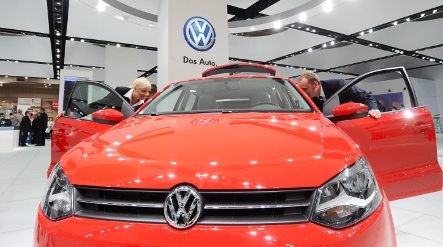Volkswagen was the highest-ranking German company on the list by business analysis group Ernst & Young. The automaker, which has been plagued by a takeover battle with Porsche, fell nine places from its 2008 ranking to land in the 35th spot, the paper said.
Energy firm Eon was a distant second to Volkswagen, ranked 62nd on the list, with a value of €48 billion ($67 billion). Rounding out the five German companies still on the list are engineering congolmerate Siemens (70), Deutsche Telekom (91) and software giant SAP (96).
American companies dominated the rankings, with 37 companies ranked in the top 100. China had 11, Great Britain contributed nine, and seven French companies made the list.
While the Top 100 companies grew in value from €6.7 trillion ($9.3 trillion), the value of the German quintuplet companies shrank by €21 billion ($30 billion) to €242 billion ($338 billion US).
“To a large extent, the recovery of the global stock markets went right past the top German companies,” Ernst & Young executive committee member Hendrik Hollweg told Die Welt.
Adding to Germany’s losses, the only three companies to be bumped from the 2008 list were all German businesses. At the end of 2008, pharmaceutical giant Bayer, power supplier RWE and insurance corporation Allianz had all ranked in the top 100.
Most of the global increase came from firms in the developing world.
“It appears that there, the enterprises will better get over this crisis than Europeans and Americans,” Hollweg said.
The top ranking company, Petrochina, is almost equal in value to all five of the German companies that make the list. Mainland China’s biggest producer of oil is listed with a value of €240 billion ($336 billion).



 Please whitelist us to continue reading.
Please whitelist us to continue reading.
Member comments